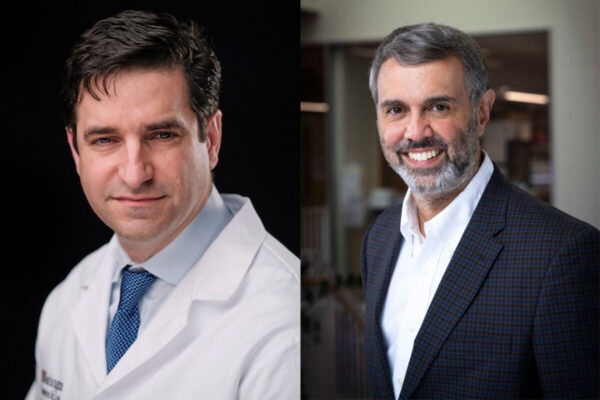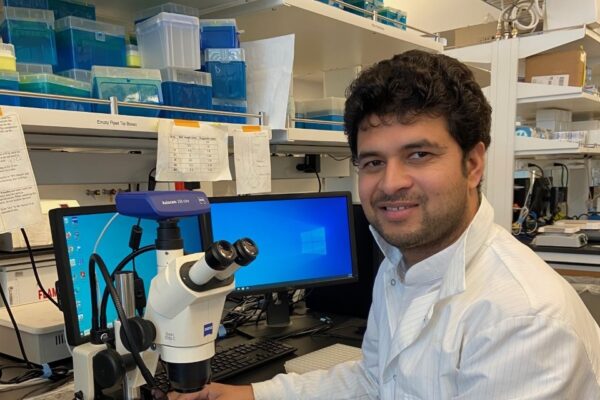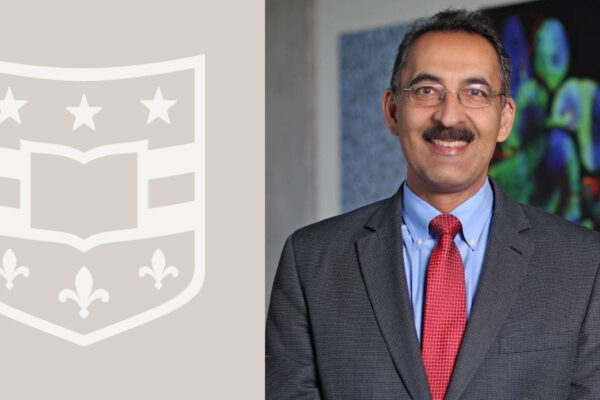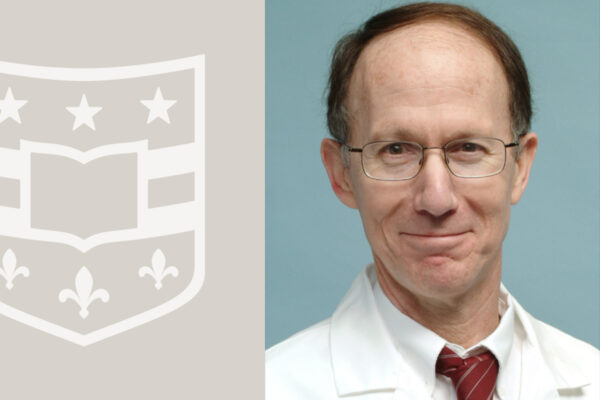Leuthardt, Mitra selected as AIMBE fellows
WashU Medicine’s Eric C. Leuthardt, MD, and Robi Mitra, PhD, have been named fellows of the American Institute for Medical and Biological Engineering.
Study to explore influence of estrogen on aortic aneurysm progression
Researchers at the McKelvey School of Engineering will investigate the effect of estrogen on thoracic aortic aneurysm development and develop patient-specific biomarkers to manage the disease.
Baldridge receives Global Grant for Gut Health award
Megan Tierney Baldridge, MD, PhD, an associate professor in the Department of Medicine at WashU Medicine, received a $100,000 grant to explore the interactions between the viruses that infect bacteria, known as bacteriophages, and human intestinal epithelial cells.
Harnessing mechanobiology to combat kidney disease
Researchers at Washington University have received a $4 million grant to study specialized cells that could help treat kidney disease.
Researchers find intestinal immune cell prevents food allergies
Researchers at WashU Medicine found that a small population of immune cells in the mouse intestine prevents allergic responses to food, suggesting that targeting such cells therapeutically could potentially lead to a new treatment for allergies.
Study uses body’s clock to deliver medication precisely when needed
Researchers at WashU Medicine have harnessed the internal circadian clock of the body to deliver medication for an inflammatory illness precisely when it was most needed.
Machine learning could help predict adherence to HIV treatment
Researchers at Washington University use data science to improve adolescent compliance with HIV treatments in low-resource areas.
Refugees define success on their own terms, study finds
Refugees resettled in the U.S. often define success in ways that go far beyond economic self-sufficiency, according to a new study co-authored by WashU researchers. The study challenges long-held assumptions about what makes resettlement successful in the U.S.
Lee named new head of ophthalmology and visual sciences
Aaron Y. Lee, MD, a leader in applying artificial intelligence to ophthalmology research and patient care, will head the John. F. Hardesty, MD, Department of Ophthalmology & Visual Sciences at WashU Medicine.
Immune booster reduces secondary infections in COVID-19 patients
A clinical trial led by Richard S. Hotchkiss, MD, a professor of anesthesiology at WashU Medicine, has found that treating critically ill COVID-19 patients with an immune-boosting protein reduces life-threatening secondary infections, a major cause of death in such patients.
Older Stories









